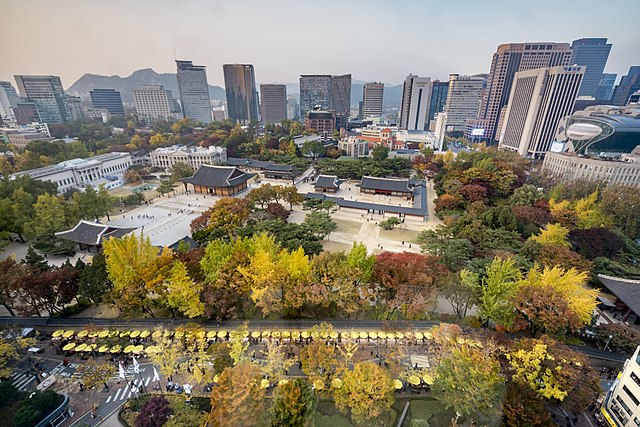Korea Electric Power Corporation
Korea Electric Power Corporation, better known as KEPCO (Korean: 켑코) or Hanjeon (Korean: 한전), is the largest electric utility in South Korea,
responsible for the generation, transmission and distribution of electricity and the development of electric power projects including those in nuclear power, wind power and coal. KEPCO, through its subsidiaries, is responsible for 93% of Korea's electricity generation as of 2011. The South Korean government owns a 51.11% share of KEPCO. Together with its affiliates and subsidiaries, KEPCO has an installed capacity of 65,383 MW. On the 2011 Fortune Global 500 ranking of the world's largest companies, KEPCO was ranked 271. KEPCO is a member of the World Energy Council, the World Nuclear Association and the World Association of Nuclear Operators. As of August 2011, KEPCO possesses an A+ credit rating with Fitch Ratings, while Moody's has assigned KEPCO an A1 stable rating.
Lee Chae-Yeon, the president of Hanseong Electric Company circa 1898
Seoul, officially Seoul Special City, is the capital of the Republic of Korea (ROK), commonly known as South Korea, and the country's most extensive urban center. The broader Seoul Capital Area, encompassing Gyeonggi province and Incheon metropolitan city, emerged as the world's fourth largest metropolitan economy in 2014, trailing only Tokyo, New York City, and Los Angeles, hosting more than half of South Korea's population. Although Seoul's population peaked at slightly over 10 million, it has gradually decreased since 2014, standing at approximately 9.97 million residents as of 2020. Seoul is the seat of the South Korean government.
Image: Seoul (175734251) (cropped)
Image: 덕수궁의 가을
Image: Republic of Korea capitol
Image: Lotte World day view 2





